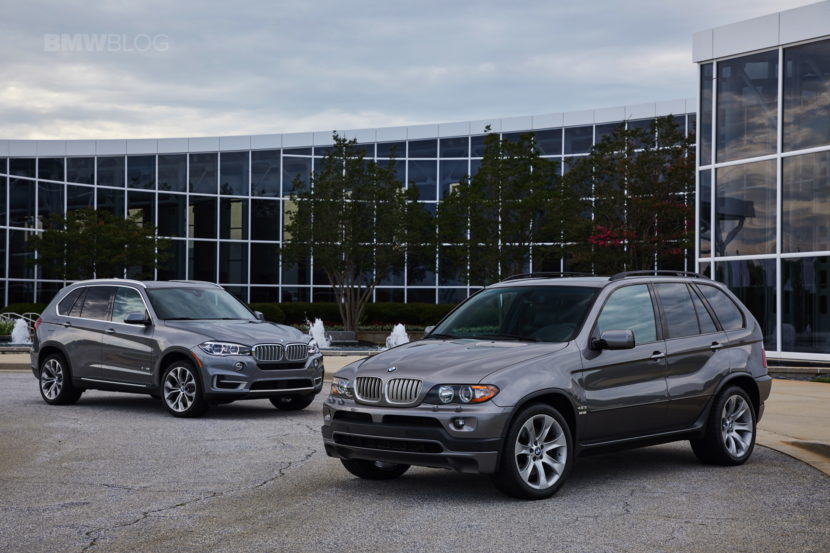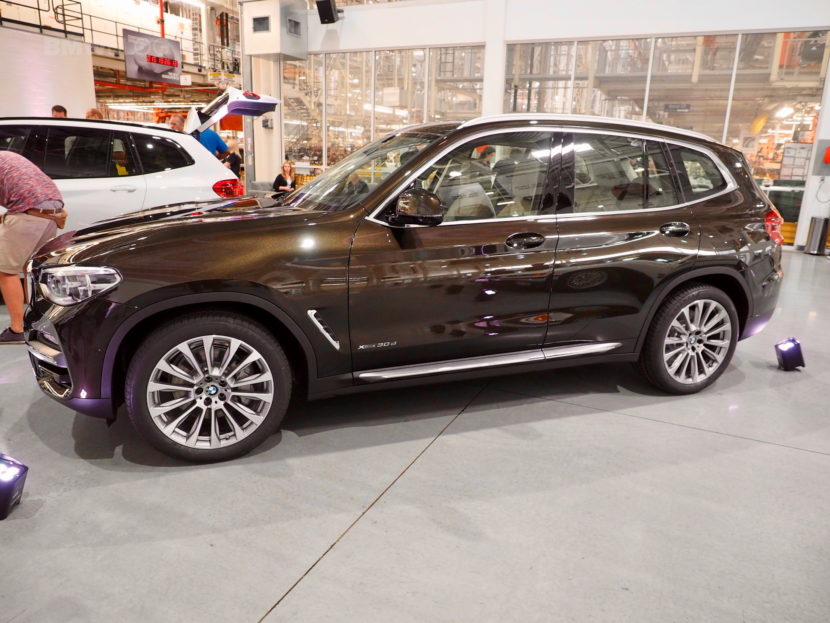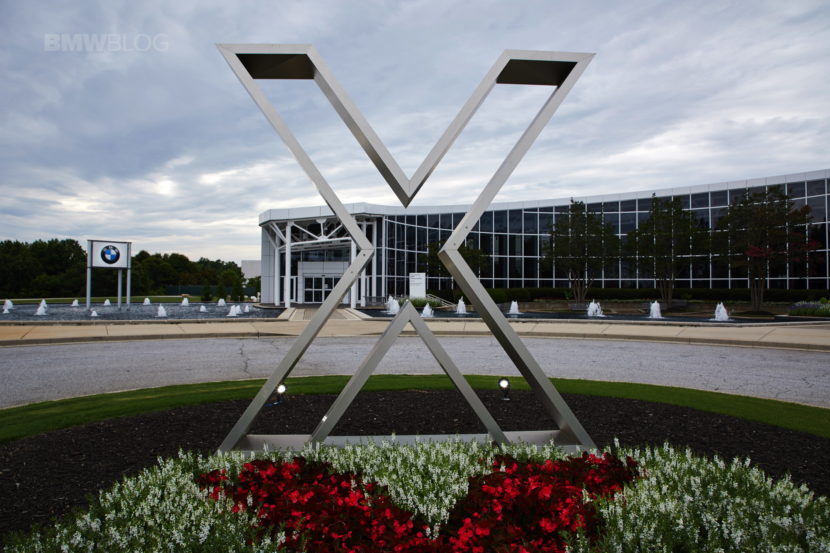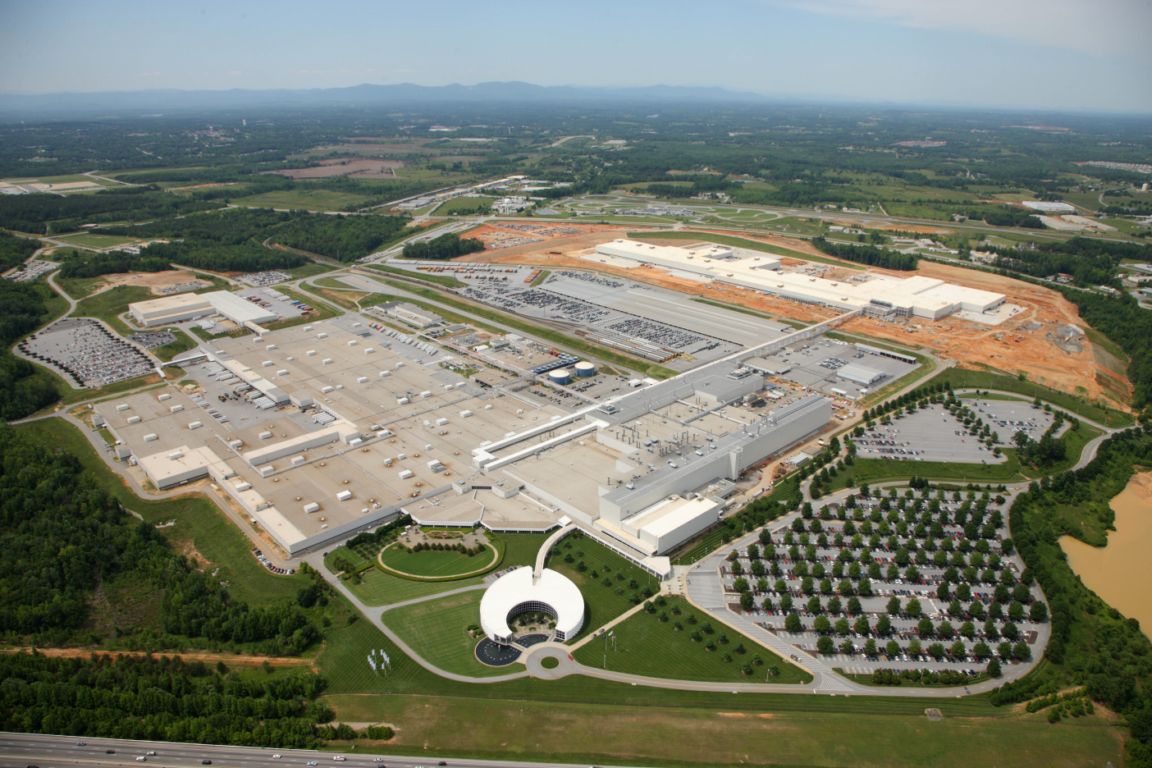We don’t like to get political here at BMWBLOG. After all, we’re a car site and that’s what we intend to stay. However, there’s a certain political situation that’s almost impossible to avoid for BMW enthusiasts. So we must address it and cover it. And it all revolves around BMW’s Spartanburg, South Carolina plant.
A few months ago, President Trump had made some claims that he was thinking about putting tariffs and restrictions on trade between the United States and Germany. At the center of this was BMW and its Spartanburg plant. BMW has been trying to talk with the President about the benefits of the Spartanburg plant, for both parties, and how trade restrictions will hurt the US economy, especially the economy of South Carolina, which has seem a massive boom in growth and prosperity since BMW arrived. BMW CEO, Harald Krueger even made a trip to the White House a few months back, accompanying German Chancellor Angela Merkel, to try and explain this to the President. However, it seems that the message hasn’t gotten through to Washington if trade restrictions are still being discussed.

Krueger wants to make it abundantly clear that free trade, the very backbone of the American economy, must be kept alive in order for both parties to profit. Though, he’s optimistic things will turn out okay. “I’m not concerned, but we need to play our role to make clear and take this plant as an example,” Krueger recently told reporters at Spartanburg, during the X2 launch. “With free trade, with the open markets, the United States is benefiting from that approach.”
The South Carolina plant is one of BMW’s largest, second only to Munich, and is the sole manufacturing plant of the BMW X3, X4, X5, X6 and soon to be X7. Since it’s the only plant that develops those X-line models, it exports hundreds of thousands of cars, to over 140 countries worldwide, every year. Those exports totaled $10 billion last year alone. That’s huge for the American economy and it also immensely helps the local economy of South Carolina as well. A Spartanburg County Councilman even recently addressed the benefit of BMW’s plant to the region. “In the mid-to-late ’80s, we lost 25,000 jobs in Spartanburg, just with the demise of the textile industry,” said County Councilman David Britt. “We were in a world of hurt. We had nothing. When it went away, it was just a tremendous devastation.” But BMW’s plant helped to turn this around. “BMW saved Spartanburg County,” he said. “It set us up to be an industrial Mecca.”

BMW employs over nine thousand employees in Spartanburg but it’s not just those employees that benefit. The supply chain, consisting of mostly American companies and services, is also greatly benefited by brands like BMW manufacturing in the US. So the economic reach of BMW building, selling and exporting hundreds of thousands of cars in the US is massive.
While Krueger is optimistic that everything will remain fine, he does admit that extra trade restrictions could cause BMW to pull out. “If we would have trade barriers,” Krueger said, “maybe we would need to shift that production from here to somewhere else because it can no longer be affordable.”

But it isn’t just BMW. Mercedes-Benz is building a massive, multi-billion dollar plant in Alabama and Volvo is building one in South Carolina as well. Free trade is paramount to the success of the US working with foreign companies to create this sort of economic and business success. BMW knows that the Spartanburg plant is incredibly beneficial to both BMW and the United States. It just seems that sentiment isn’t mutually shared.
[Source: Auto News]





































































